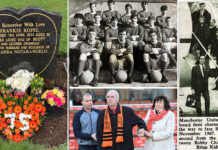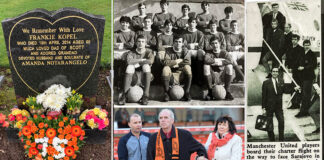After four days without a Gold medal Team GB finally got themselves on top of the podium with a powerhouse performance by Helen Glover and Heather Stanning – and that was the magnificent spark that opened the floodgates for the host nation’s best day at the Games so far.
Cycling superman Bradley Wiggins earned his place in the record books a few hours later when he won Gold in the men’s time trial to become Britain’s most decorated Olympian with seven medals.
There was another medal winning performance by the rowers when Great Britain gave favourites Germany a run for their money in the men’s eight final on their way to a brave bronze.
And Michael Jamieson pulled off the swim of his life to win a silver in the 200m breaststroke.
ROWING: But the catalyst for a great day for Team GB was that awesome victory by Glover, 26, and Stanning, 27, when the world silver medallists clocked a time of 7:27.13 to grab Gold in the women’s pair.
It was an historic display that made them the first British female rowers to win an Olympic title.Cheered home by an ecstatic sell-out crowd at Eton Dorney the girls came home in style ahead of Australia, with New Zealand taking the bronze.
WIGGINS POPULAR WINNER IN MEN’S TIME TRIAL
CYCLING: When Wiggins crowned an unbelievable fortnight adding Gold in the men’s time trial it made him Britain’s most decorated Olympian. Fresh from his triumph in the Tour de France, it was a remarkable achievement.
Taking his tally to four golds, Wiggins dominated the 44km ride around Hampton Court. His victory moves him one medal clear of Sir Steve Redgrave as the most successful British Olympian of all time. GB teammate Chris Froome took bronze behind Germany’s world champion Tony Martin in silver.
Wiggins is the man who will grab all the headlines with a win that sparks the great debate about who is Britain’s greatest Olympic athlete of all time. In my view it is a pointless argument. Both men – along with other greats like Daley Thompson – can argue they are the ultimate competitor.
But Wiggo, who revealed he wants to continue his medal chase in Brazil in 2016, could make it even harder to argue against him being the greatest.
“It will never, never get better than that. Incredible. It had to be gold today or nothing. What’s the point of seven medals if they’re not the right colour? Mainly it’s about the four golds'” he said, adding: “Now I have to go to Rio and go for five.”
All Wiggins’ previous Olympic medals came on the track – three golds, one silver and two bronzes.Redgrave, meanwhile, has five golds and one bronze.
ROWING: The oldest medal winner was 40-year-old Greg Searle who was in the men’s eight that claimed bronze after providing world champions Germany with a big scare. Ahead of Germany at halfway, the British team ran out steam with Canada pipping them on the line for silver.
Searle’s teammates were Constantine Louloudis, Alex Partridge, James Foad, Tom Ransley, Ric Egington, Mo Sbihi, Matt Langridge and cox Phelan Hill. For Searle it was justification for coming out of retirement after winning Gold in Barceloa in 1992 and bronce at Atlanta in 1996.
On taking the lead at 1,000m, Searle said: “I had an amazing rush of adrenalin and I thought this really could come true. The crowd was so amazing, so loud, but we didn’t have anything left and the Germans came back at the end.”
SWIMMING: Meanwhile, in the 200 metres breatstroke final, Jamieson smashed his own British best and it took a new world record from Hungary’s Daniel Gyurta to deny him gold, Japan’s Ryo Tateishi taking the bronze.
It was one of the great highlights at the Aquatics Centre to witnessthe 23-year-old Scot, in his debut Olympics, charge down the final 50m to deafening noise and see the 2011 world champion narrowly hold on.
THE RACE: https://youtu.be/JpqWeGyrGOM

















